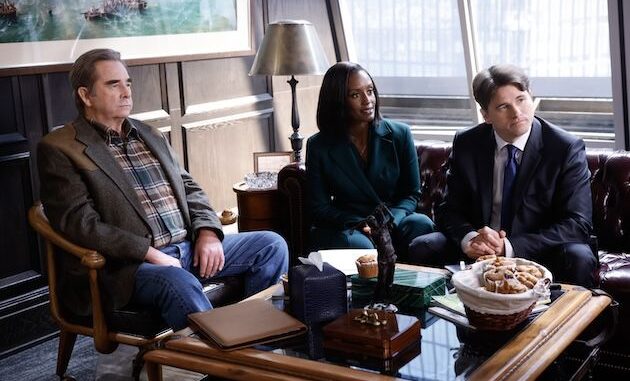
The Unscripted Encore: Is “Matlock” Her Last Role? Bates Clarifies Retirement After Reboot Sparks Speculation
Hollywood loves a definitive ending. A final curtain call, a triumphant last act, a legendary performer gracefully bowing out at the peak of their powers – these narratives offer a comforting sense of closure, a neat capstone to an illustrious career. Yet, life, and particularly the life of an artist, rarely adheres to such tidy scripts. This dynamic tension between public expectation and personal reality recently played out in the media surrounding Kathy Bates and her starring role in the Matlock reboot, sparking a flurry of speculation about whether this beloved titan of the screen was finally contemplating her own unscripted retirement.
The question, “Is Matlock her last role?”, didn’t emerge from a direct announcement but rather from the fertile ground of online discussion, amplified by a few nuanced comments by Bates herself. It’s a natural inquiry when an actress of her stature, whose very name conjures a gallery of unforgettable characters from the chilling intensity of Annie Wilkes in Misery to the spectral wit of Miss Delphine LaLaurie in American Horror Story, takes on a new, high-profile project after decades of ceaseless work. Her career isn’t just a list of credits; it’s a masterclass in versatility, a testament to an artist’s ability to inhabit vastly different souls with unwavering commitment. For someone who has shaped the cinematic landscape for generations, any hint of an impending exit carries the weight of a cultural moment.
The Matlock reboot itself, casting Bates as a sharp-witted, septuagenarian attorney Madeline Matlock who returns to the legal world, is a vehicle ripe for such speculation. It’s a role that demands intelligence, gravitas, and a certain seasoned weariness, qualities Bates embodies effortlessly. For many, it felt like a fitting, almost symbolic, capstone – an iconic actress stepping into the shoes of another iconic character, albeit reimagined, offering a full-circle moment. When interviews then surfaced where Bates mused about the demanding nature of a network television schedule, the gruelling hours, and the desire for more time for personal pursuits, the public imagination, ever-hungry for a definitive headline, promptly translated these considerations into “retirement plans.”
However, Bates, with the characteristic clarity and forthrightness that has defined her career, soon stepped in to clarify. Her statements, far from announcing a definitive departure, painted a more nuanced picture. She wasn’t hanging up her hat; she was merely acknowledging the intense commitment a series like Matlock requires and perhaps indicating a desire to slow down, to choose projects with greater deliberation, or to prioritize her well-being. The distinction between “retiring” and “recalibrating” is crucial, yet often lost in the echo chamber of instant news and social media buzz. For an artist like Bates, whose life is so deeply intertwined with her craft, the act of “slowing down” is a far cry from the finality of “hanging up the hat.”
This brief flurry around Kathy Bates and her Matlock turn serves as a potent illustration of several truths about artistry and public perception. Firstly, it highlights our collective fascination with endings, a desire for narrative arcs to be neatly tied up, even when life itself is a continuous, unfolding story. Secondly, it underscores the intense scrutiny public figures endure, where casual remarks can be amplified into definitive pronouncements. Most importantly, it reminds us that for true artists, retirement is often not a sudden stop, but a gradual evolution. Their passion isn’t a tap that can simply be turned off; it’s a river that might meander, slow its pace, or even shift its course, but its essence remains, always seeking new channels to flow.
So, is Matlock her last role? If Kathy Bates’s clarification is anything to go by, the answer is a resounding “not necessarily.” It might be a significant role, a challenging role, or even a role that leads her to consciously choose a lighter workload in the future. But to declare it her final act would be to prematurely close a book that is clearly still being written. Her career is an enduring odyssey, and audiences, rather than seeking a final curtain call, should instead anticipate the next captivating chapter from this inimitable artist. The encore, it seems, is still very much unscripted.
